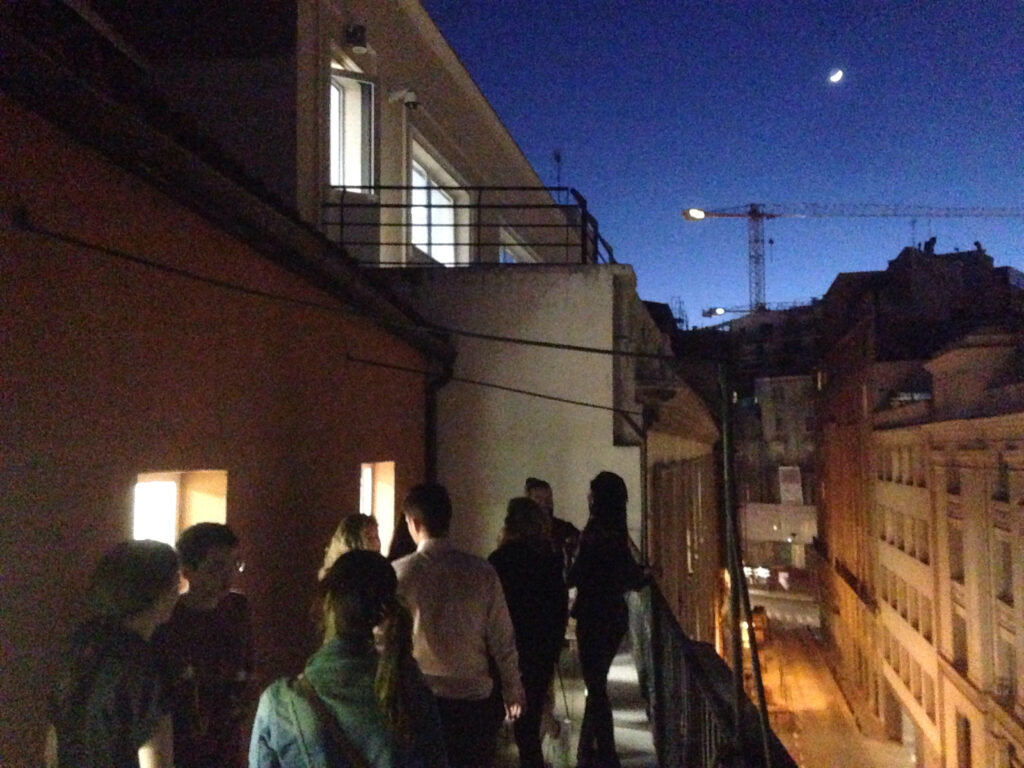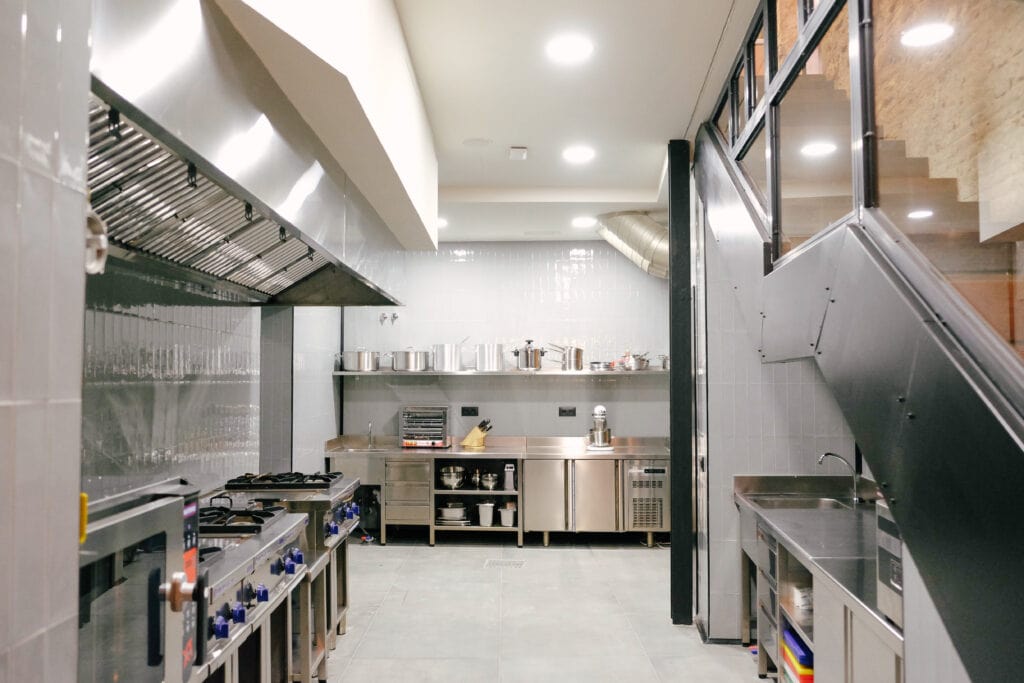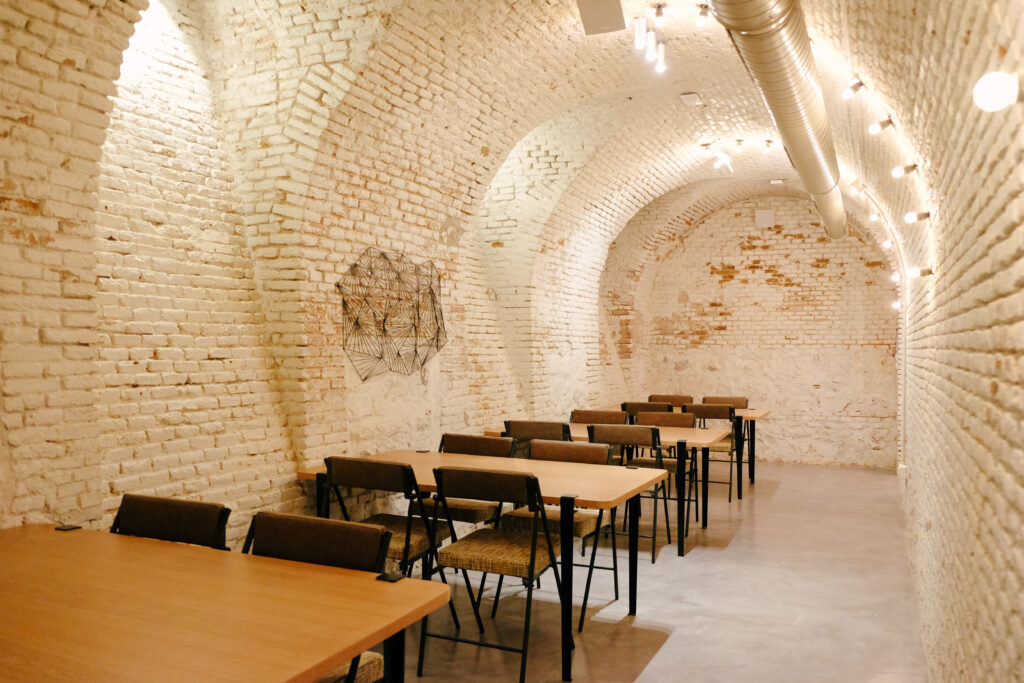Following the opening of our coliving in center Madrid, the monthly Spanish newspaper El Economista – Inmobiliaria came for a tour of the space. Read the full article in Spanish here or a translation to English there.
Following the opening of our coliving in center Madrid, the monthly Spanish newspaper El Economista – Inmobiliaria came for a tour of the space. Read the full article in Spanish here or a translation to English there.
Coliving is a growing trend for 2019 and a source of interests and questions for real estate investors. We were invited to Radio Capital to discuss what coliving is bringing to the Spanish real estate sector and how we have been implementing it. If you missed our discussion with Catella Patrimoine, iKasa and The House, just click play below or follow this link.
https://capitalradio-ondemand.flumotion.com/audio/mp3/low/20190110_INVERSION_INMOBILIARIA_3.mp3
Following the opening of our coliving in center Madrid, the Spanish newspaper El Mundo came for a tour of the space. Read the full article in Spanish here or a translation to English there.
Why share an office? Why share a home?
A few weeks ago, we were invited at Maison & Objet to talk about the benefits of sharing space, together with Chiara de Rege, interior designer of female co-working club The Wing, and Claire Flurin, Executive Director of Co-liv.
We tried to convey the message that co-working and co-living spaces are all about people and communities, not buildings.
If you missed it, here is the video of the inspiring discussion we had:
Bouygues Immobilier, a leading real estate developer, organized a roundtable on AI at MIPIM in Cannes. Participants included prominent real estate investors and data scientists.
Whilst for many real estate investors and managers AI seems like a futuristic topic, Urban Campus routinely uses machine learning and other advanced methods to operate its spaces and manage its community.
– CEO
Urban Campus opens its first co-living residence, Mellado Madrid Coliving in the sought-after barrio of Gaztambide in Madrid.
The residence has 83 private studios and rooms, many shared spaces and terraces, and a collaborative garden on the rooftop. It is being co-designed with Urban Campus members, who are also active participants in their daily management.
– CEO
How our core values define the way we design spaces? .
User-centered design, an approach of creating innovative products and services with strong user participation, has been widely adopted by the startup community in recent years. Thousands of companies worldwide have been putting tremendous effort to build products people love.
The idea of user participation in the real estate industry however is new. Regulations, financial planning and construction efficiency make it hard to adopt innovation.
At Urban Campus we believe this must change. We challenge ourselves to create an environment where our members feel and perform at their best – both at work and in their leisure time. We design and develop spaces not just for the people, but together with them.
In the last months, we’ve been working hard to welcome new members in our first shared living community in Madrid – the first rooms will be available in Madrid Gaztambide (Chamberi) by the end of June!
To make this happen, we’ve reached out to people interested in our initiative and gathered them in our co-working space in the center of Madrid – Jerónimo. Javi, Majida, Shay, Macarena, Alexander, Sophie, and the architect’s team – thank you so much for all your help, you are the best!
We had an intense workshop to understand better our current and future members and how to create the best experience for them to work, live and have fun.
Bridging the gap between living and working communities has been a big part of why we started Urban Campus. We were happy to see that the participants see their future lifestyle in a similar way as we do. We were even happier to see them challenge some of our hypothesis and brainstorm new ideas with us!
Even though the workshop was centered around co-living, the work-life balance has constantly come into the debate. Aside from having a place to live and relax, our participants are looking for an environment where they can focus, be productive, advance in their personal and professional projects as well as express their creativity and relax after hours – we’ve got you covered!
At Urban Campus, our core mission is bringing people together. Having participants with all different backgrounds in the room (countries, jobs, ages, interests, passions…) allowed us to make sure every voice is heard. We were impressed by the energy and creativity of all of you, both when designing private and common spaces in our co-living: maker workshops and music studios just to name a few.
A well-furnished studio or a room, quality service, decorated with a heart…each of these points are important parts of co-living experience for our members. But beyond the material aspect, it’s the culture and community that participants truly value: meeting new people from all walks of life, learning from their experiences, living with others who share the same values (respect, share and caring). We are making extra effort to make sure we incorporate what matters to our members in the design of our next co-living space and the future projects.

Why do good times pass by so quickly? The evening extended around food and drinks on the terrace of Jerónimo. More than a workshop full of valuable insights from our current and future members, this evening was the opportunity for us to meet people inspired by the same values that those that drive our team.
We can’t get enough! We can’t wait to start having you in our co-living space, be it for a visit or for a longer stay. We are already planning our next community workshops and think of ways to empower the most active members of our community.
If you are interested in joining our co-living in Madrid, don’t forget to apply!
“Oye, y esto, que va a ser?” (Hey, what’s this going to be!?) Seems to be the question on everyone’s mind as they walk by the recently finished Foodlab by Urban Campus and Gastroemprendedores.
The neighborhood is buzzing with excitement as passer’s-by peer in through the glass door curiously squinting to see what the new space has to offer.
The Foodlab, right in the heart of Madrid, is designed specifically for those who are passionate about gastronomy.
Aspiring and seasoned entrepreneurs, chefs, and lovers of food and beverage, will have the opportunity to create, innovate, experiment, test, and share their ideas in a vibrant community of like-minded people.

With its modern yet rustic design, the Foodlab will soon become the pinnacle of culinary creativity in Madrid.
The upstairs space is comprised of an intimate coworking area with brick lined walls, a chill out zone, a communal kitchen, and a meeting room. On the lower level, a shared professional kitchen with state-of-the-art equipment and one of Madrid’s magnificent historic caves.

The ergonomic and versatile space along with business support and mentoring provided by partner incubation program, Gastroemprendedores, offers members an ideal workplace to focus on their Food & Beverages projects and an ambitious community intended to encourage partnerships and collaborations.
Urban Campus’ expertise lies in fostering communities that inspire creativity and innovation. The new Foodlab sets out to strengthen this mission while asserting itself as an integral member of the already existing culinary scene in Madrid.
– Community Manager
Co-Liv! was the first global conference dedicated to the co-living movement. It was organized by PUREHOUSE LAB from 7-9 December 2017 and attracted more than 100 participants from all over the world.
Co-living means different things to different people and there are multiple economic models that are emerging. However, the overall objective is the same: to create a housing offer that is attractive, community-based, and affordable.
John van Oost and Christopher Bledsoe, co-founder, and CEO of Ollie, spoke about the risks and opportunities of financing co-living ventures offering both the US and European perspectives. Leading institutions, developers, and REITs have noticed the co-living movement and are starting to be active investors in both the buildings and the operators.
The social housing sector in France represents 5 million residential units and houses 18% of the French population.
It faces many challenges. How to adapt its existing residences to changing demographics and lifestyles? What services needs to be offered to tenants? How to break social isolation?
Batigère, a leading player in the French social housing sector, organised a series of workshops on November 9th 2017 to address these questions and discuss concrete solutions. More than 250 employees from Batigère contributed ideas.
John van Oost led two workshops on “Co-location, co-living and other emerging housing formats” and “the digital transformation of residential buildings”. He also presented how Urban Campus’ technology could be deployed in large residential portfolios.